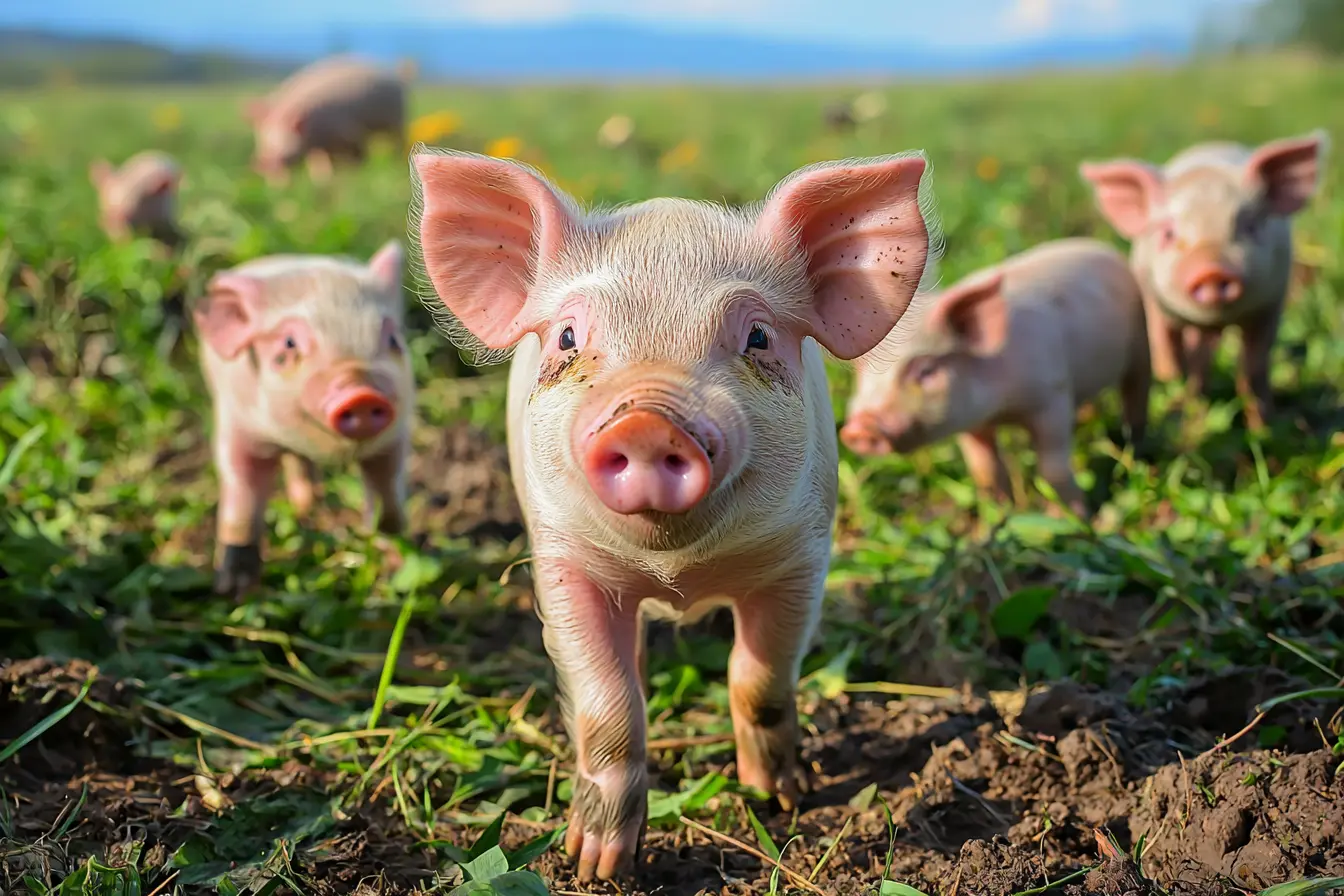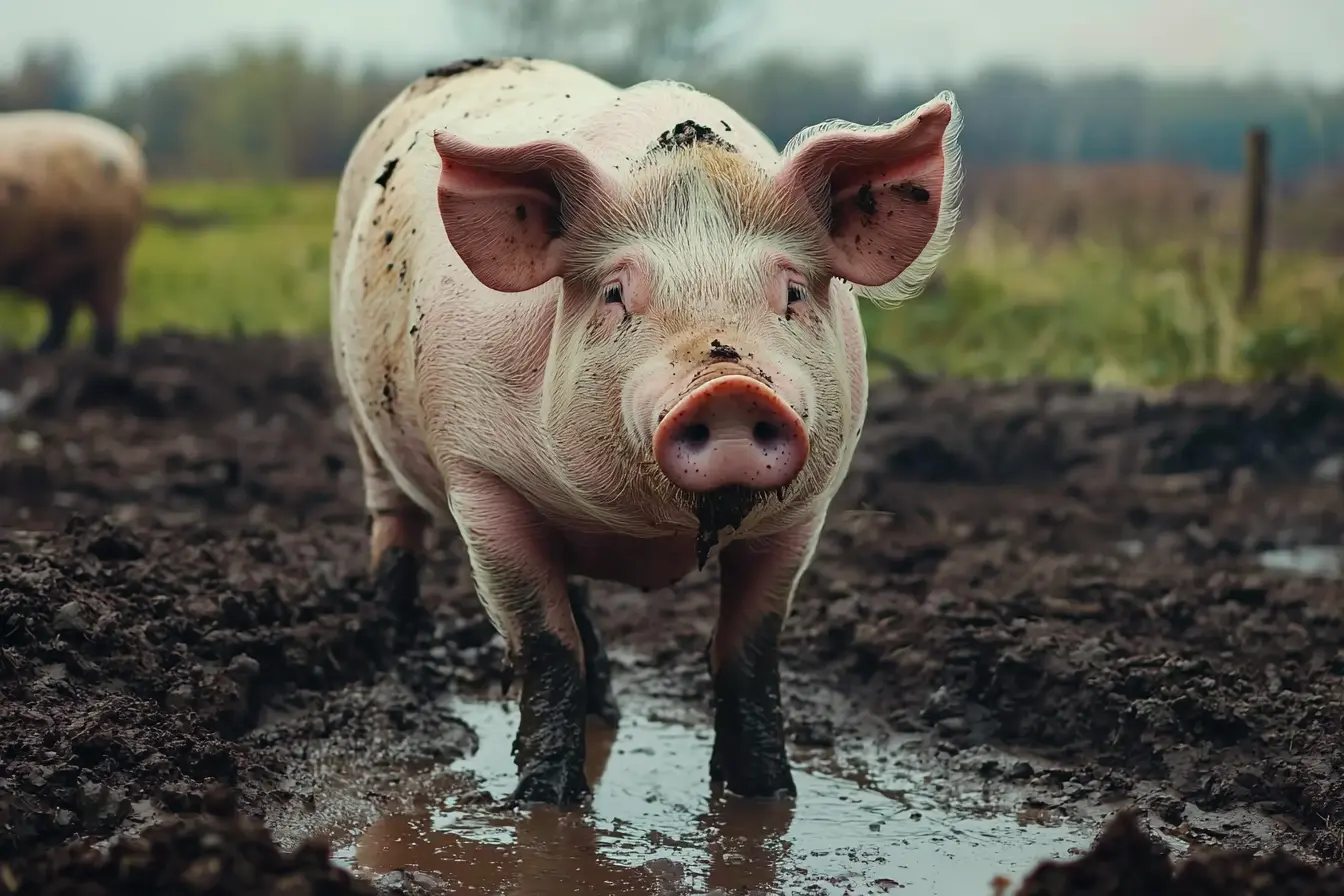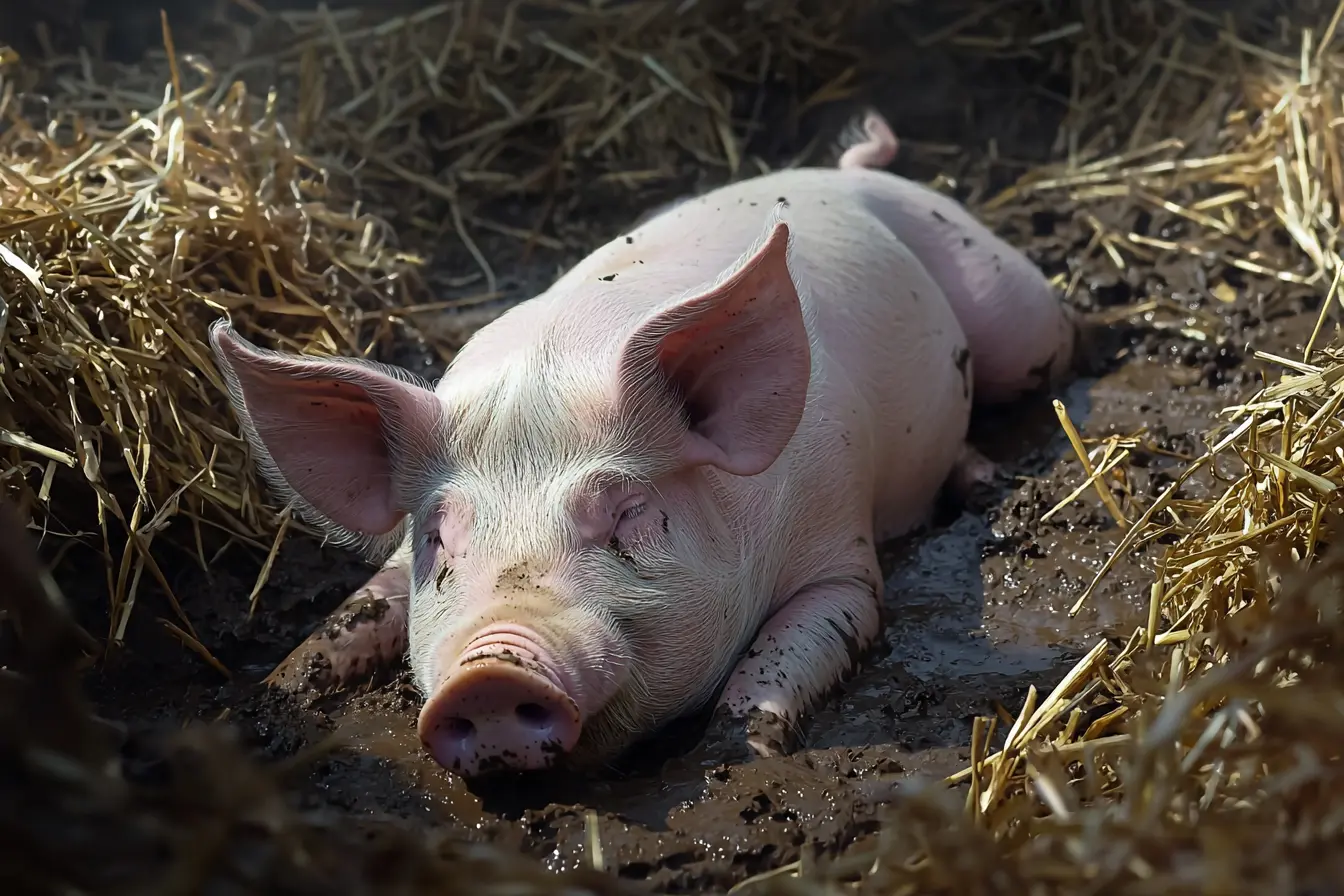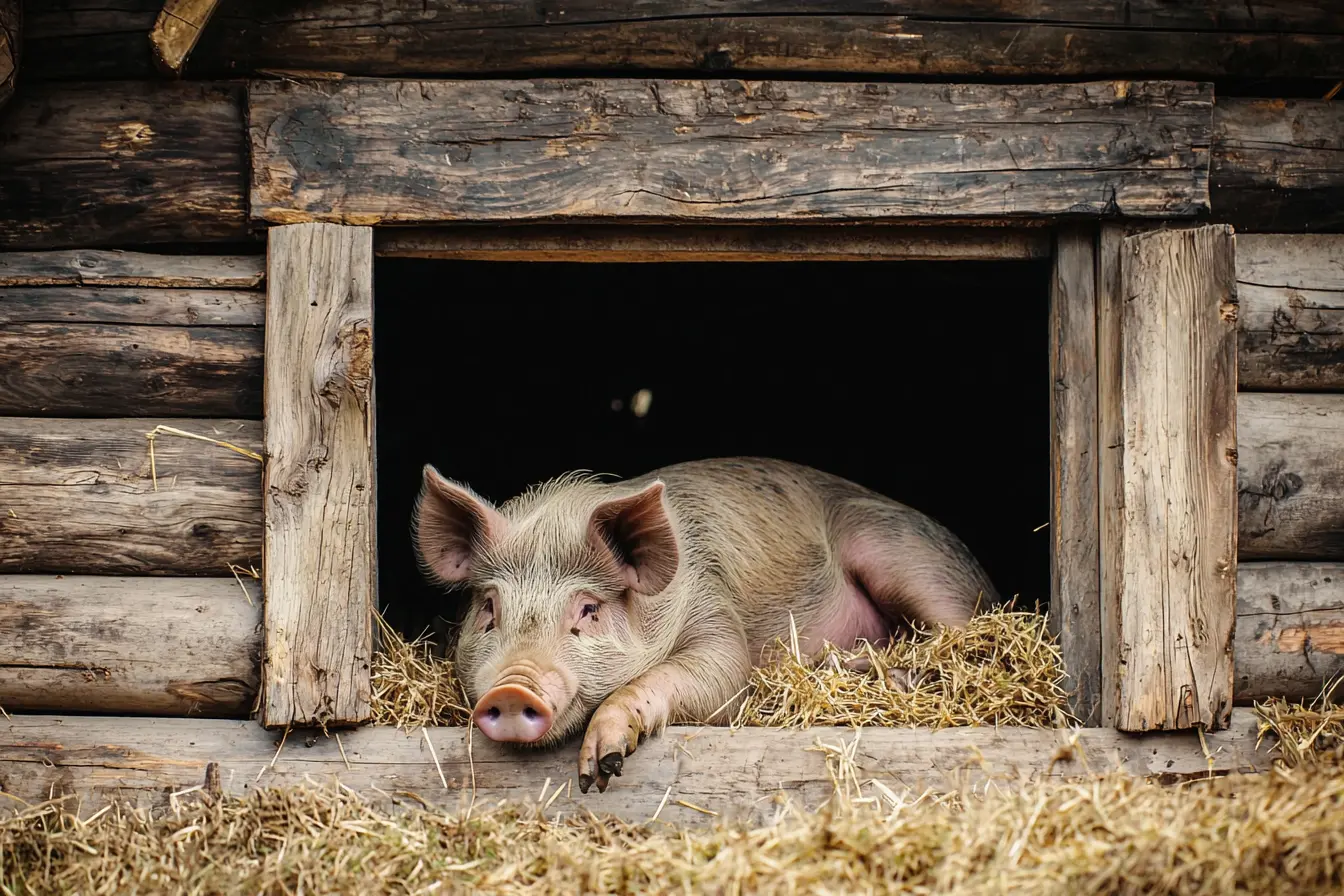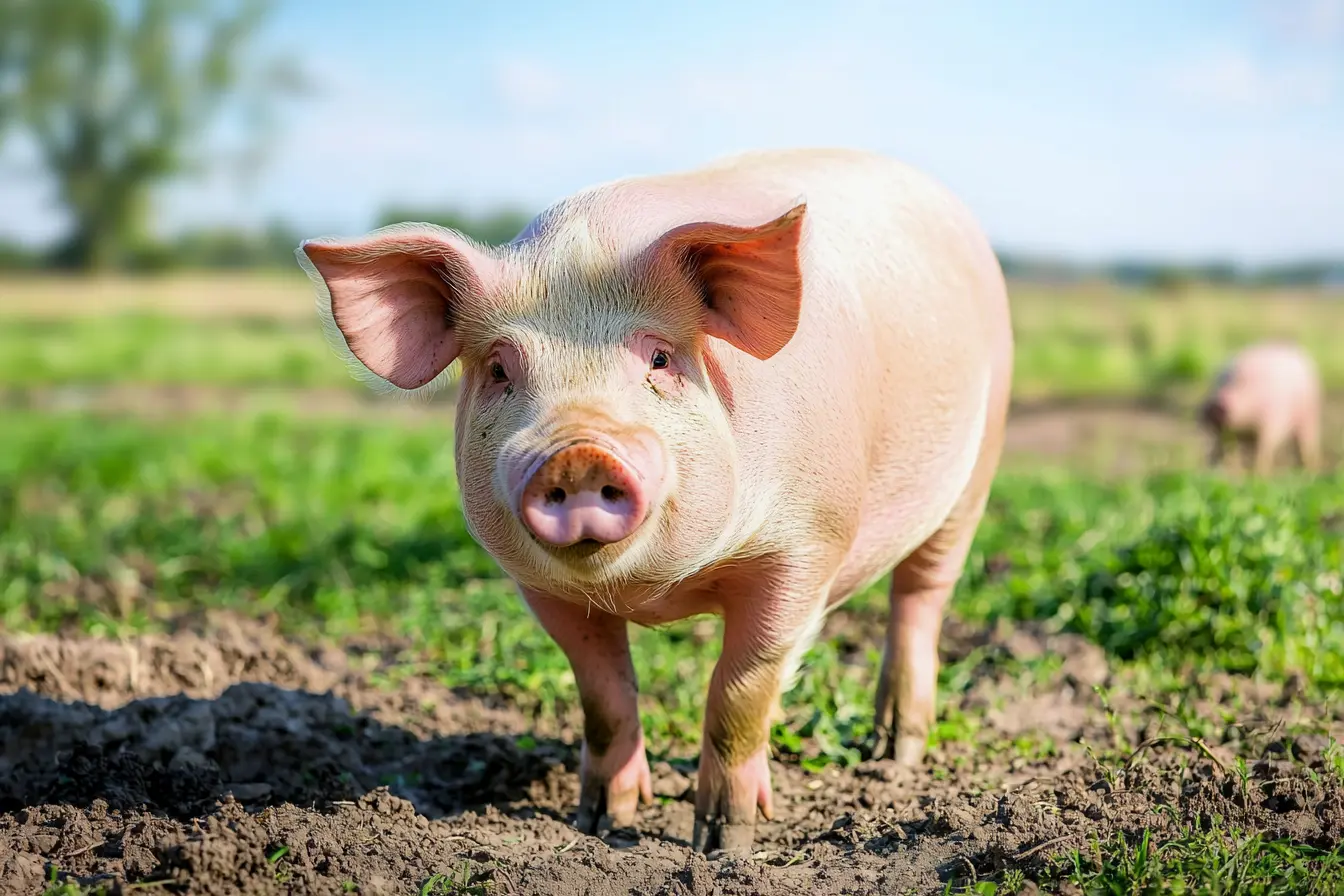
A Complete Guide to Caring for Landrace Pigs
Landrace pigs are a highly productive breed known for their excellent meat quality and adaptability. Originally developed in Denmark, they have become one of the most popular pig breeds worldwide due to their rapid growth rates, high fertility, and strong mothering abilities. If you’re considering keeping Landrace pigs, this guide will provide you with everything you need to know to care for this breed, including housing, feeding, breeding, and health care.
A Brief History of Landrace Pigs
The Landrace pig originated in Denmark in the 1890s and was bred to produce high-quality bacon for export. The breed quickly gained popularity due to its long body, excellent reproductive performance, and ability to thrive in various farming environments.
Today, Landrace pigs are used globally in commercial farming and crossbreeding programmes to improve the productivity of other breeds. In the UK, they are highly valued for their lean meat production and strong maternal instincts.
Key Characteristics of Landrace Pigs
Landrace pigs have several distinct traits that make them a popular choice for both commercial and small-scale pig farming.
- Size: Large. Mature boars can weigh up to 350kg, and sows can weigh around 300kg.
- Coat: White, with a fine, straight coat and pink skin.
- Ears: Large, drooping ears that often cover their eyes.
- Body Shape: Long body with a deep, well-muscled frame, making them ideal for bacon production.
- Temperament: Generally calm and docile, making them easy to handle.
- Mothering Ability: Known for their strong maternal instincts and large litter sizes.
Housing for Landrace Pigs
Landrace pigs can be kept in both indoor and outdoor systems, but due to their pink skin, they are prone to sunburn and require adequate shelter if kept outdoors.
Shelter Requirements
- Outdoor Housing: Provide a sturdy, weatherproof shelter such as a pig ark or hut. The shelter should be well-ventilated, dry, and large enough to accommodate the pigs comfortably.
- Indoor Housing: If keeping Landrace pigs indoors, ensure the building is spacious, clean, and well-ventilated. Provide bedding such as straw to keep them warm and comfortable.
- Bedding: Use straw or wood shavings as bedding and replace it regularly to maintain hygiene.
Fencing
- Secure Fencing: Landrace pigs are strong animals, so secure fencing is essential. Electric fencing or sturdy post-and-rail fencing with mesh is recommended.
- Shade and Protection: If keeping Landrace pigs outdoors, ensure they have access to shaded areas to prevent sunburn and heat stress.
Feeding Landrace Pigs
Landrace pigs are fast-growing animals that require a well-balanced diet to maintain healthy growth and productivity.
Diet
- Commercial Pig Feed: Provide a high-quality pig feed that contains essential nutrients such as protein, fibre, vitamins, and minerals.
- Foraging: If possible, allow pigs to forage in pasture areas to supplement their diet. However, they will still need additional feed to meet their nutritional requirements.
- Fruits and Vegetables: You can supplement their diet with fresh fruit and vegetables, but avoid feeding anything toxic or spoiled.
Water
- Ensure your pigs have constant access to fresh, clean water. Pigs drink a significant amount of water daily, especially in warm weather or when consuming dry feed.
Breeding Landrace Pigs
Landrace pigs are renowned for their reproductive performance, making them an excellent choice for breeding.
Breeding Tips
- Age to Breed: Sows can be bred from around 8-12 months of age, and boars can be used for breeding from 12 months.
- Gestation Period: The gestation period for pigs is approximately 114 days (3 months, 3 weeks, and 3 days).
- Farrowing: Provide a comfortable, clean farrowing area for the sow to give birth. Landrace sows are attentive mothers and typically produce large litters.
Health Care for Landrace Pigs
Maintaining good health care practices is essential for keeping your Landrace pigs healthy and productive.
Vaccinations
Work with your vet to establish a vaccination schedule for your pigs. Core vaccinations typically include protection against:
- Erysipelas
- Porcine Parvovirus
- Leptospirosis
- Clostridial diseases
Deworming
Pigs should be dewormed regularly to control internal parasites such as roundworms and lungworms. The frequency of deworming will depend on your farm’s specific conditions and your vet’s advice.
Common Health Issues
- Sunburn: Due to their light skin, Landrace pigs are prone to sunburn. Ensure they have access to shade and apply sunblock if necessary.
- Heat Stress: Landrace pigs can be prone to overheating. Provide plenty of shade and fresh water, and consider using sprinklers or wallows to help them cool down.
- Foot Care: Regularly check their hooves for signs of overgrowth or injury.
- Overgrown Tusks: Boars may develop overgrown tusks, which can cause injury. Regular trimming may be required.
Behaviour and Handling
Landrace pigs are known for their calm and docile temperament, making them relatively easy to handle.
- Calm Approach: Approach your pigs calmly and avoid sudden movements or loud noises that may startle them.
- Positive Reinforcement: Use food as a positive reinforcement to build trust and encourage cooperation.
- Training: Pigs are intelligent animals and can be trained to follow basic commands and respond to their names.
Why Choose Landrace Pigs?
There are several reasons why Landrace pigs are a popular choice for both commercial farmers and smallholders:
- High Productivity: Landrace pigs are known for their fast growth rates and excellent meat production.
- Strong Mothering Ability: Sows have large litter sizes and are attentive mothers, reducing the need for intervention during farrowing.
- Adaptability: Landrace pigs can thrive in both indoor and outdoor systems, making them a versatile breed.
- High-Quality Meat: The breed produces lean meat with excellent marbling and flavour, making it highly sought after in the pork industry.
Final Thoughts
Landrace pigs are an excellent choice for new pig owners looking for a productive and versatile breed. By providing proper housing, a balanced diet, and regular health care, you can ensure your Landrace pigs thrive and remain healthy. Their strong mothering abilities, calm temperament, and high-quality meat production make them a valuable addition to any farm or smallholding.
Always work closely with your vet to establish a health management plan, and enjoy the rewarding experience of raising this productive and historic breed.
Vets near you
Speciality vets
- Aquatics vet specialists
- Birds vet specialists
- Camelids vet specialists
- Cats vet specialists
- Cattle vet specialists
- Deer vet specialists
- Dogs vet specialists
- Equines vet specialists
- Exotic vet specialists
- Goats vet specialists
- Pigs vet specialists
- Poultry vet specialists
- Sheep vet specialists
- Small Mammals vet specialists
- Wild vet specialists
Vet facilities
- Accessible by public transport
- Blood testing
- Car park nearby
- Client car park
- Dentistry
- Diagnostic imaging
- Disabled public access
- Flea and worm treatments
- Microchipping
- Mobile services
- Neutering
- Open at weekends
- Out-of-hours service
- Referral interests
- Referrals only
- Street parking outside
- Toilets available
- Vaccinations
